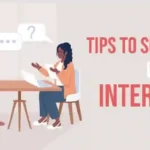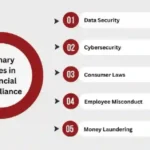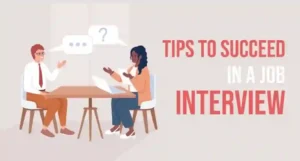Safety tips—sounds simple enough, right? But these little reminders are more like armor. And let’s face it, whether you’re online shopping for that last-minute gift or strolling through the neighborhood, keeping yourself safe has never been more crucial. Sure, we’ve all been told to lock our doors or avoid clicking on sketchy links, but safety goes deeper than that—much deeper. It’s a balancing act between protecting your identity online and knowing when to just stay aware IRL (in real life). This article will share some must-know safety tips that you can carry with you, both on the internet and when you’re out there living your life. I’ll sprinkle in a few real-world stories for good measure—because, trust me, I’ve learned the hard way!
Why Online Safety Tips Matter More Than Ever
We’ve all heard the horror stories: the hacked accounts, the stolen identities, the credit card fraud. It’s a digital jungle out there. The internet is a wild place, with dangers lurking behind every pop-up ad and every “free Wi-Fi” network. It’s easy to get lost in the convenience of it all. But, trust me, a little caution goes a long way.
1. Passwords: Don’t Let Them Be Your Weak Spot
So, I had this one password for years. It was “password123”—I mean, I know, rookie mistake. But hey, I was just a kid in college, living life, barely aware that hackers don’t care about your emotional connection to your Netflix account. So here’s the first thing you need to do: change your passwords. And don’t use “123456.” Create a password that even your pet couldn’t guess. Try using a mix of upper and lower case letters, numbers, and symbols. The more complicated, the better.
And don’t sleep on two-factor authentication (2FA). Look, I know it’s an extra step, but it’s worth it. I learned this after my old Yahoo account got hacked (RIP all my old emails). Imagine someone sneaking into your inbox and snooping through those super embarrassing high school years. Yeah, not pretty. But 2FA? It’s like adding a second lock to your door that only you can unlock.
2. Don’t Share Your Life Story
Listen, I get it. Social media is all about sharing—whether it’s that pic of you at the beach with the perfect sunset or your 10th cup of coffee today. But, and I can’t stress this enough, don’t share everything. One time, I posted about my weekend plans, casually mentioning I’d be traveling to visit family. Big mistake. Within hours, I got a weird email. Hacked. So, yeah—be mindful about posting your travel dates, your full address, or even things like your pet’s name (I know, Fluffy’s cute, but…).
One thing I’ve learned is to really tighten up those privacy settings on social media. If it’s not necessary for the world to know, keep it to yourself. The less visible you are, the less likely a hacker is to target you.
3. Update Your Devices (Or Regret It Later)
You know when your phone says, “Time for an update,” and you think, “Ugh, not now. I’m busy”? Well, let me tell you: that little nagging update is a life-saver. Those updates often include security patches that keep hackers at bay. When I first ignored an update, my phone was basically a walking target. It was like I was putting up a sign that said, “Come hack me!”
Get in the habit of updating your software as soon as possible. Whether it’s your phone, tablet, or computer—don’t let those patches pile up. If you’re like me, you’re always on the go, but think of these updates like a quick pit stop to change the oil in your car. Do it now, or regret it later.
Offline Safety Tips: Keeping Yourself Protected IRL
Alright, let’s talk about life off the screen. Being safe IRL requires more than just locking your phone; it’s about awareness, being prepared, and knowing what’s going on around you.
4. Stay Aware of Your Surroundings
I’m the first to admit I’m guilty of walking down the street with my face glued to my phone, scrolling through memes. But here’s the thing: life’s too short to let your surroundings slip by unnoticed. One time, I was so into texting that I didn’t see a guy riding his bike straight toward me. You can guess how that ended. Spoiler: my phone survived, but my dignity didn’t.
So, yeah. Safety tip: Put the phone down and be aware. Look around when you’re walking through parking lots, crossing streets, or waiting for the bus. And if you ever feel like something’s off—don’t second-guess it. Your gut’s usually right. Trust me, I’ve learned that lesson more than once.
5. Home Security: The Obvious Stuff That’s Easy to Forget
We all know to lock the doors, right? But did you know burglars love an unlocked window or sliding glass door? I learned this after an unfortunate incident (I may or may not have forgotten to lock the back door one night). It’s embarrassing to admit, but lesson learned. So, here’s my PSA: lock your doors and windows, even if you’re just stepping out to grab a pizza. And, please, install motion sensors or cameras if you can afford them.
Home security isn’t just about the fancy gadgets either. It’s about being consistent with the little things. Like not leaving packages on your porch all day—because, spoiler alert, your Amazon Prime delivery isn’t going to defend itself.
6. Don’t Leave Valuables Out in the Open
Here’s a quick tale: once, I went to the grocery store, left my purse in the front seat, and returned to find my car broken into. Never again. I learned my lesson—and my lesson was: lock your car and never leave valuables in plain sight. Doesn’t matter if it’s your phone, wallet, or that $4 lip balm you just bought. Keep it out of view.
Same goes for your home. Hide your important documents, keys, and anything valuable in a safe, or at least somewhere out of plain sight. Trust me, if someone’s scoping out your place, they won’t even think twice about snatching what they can.
Taking Care of Your Mental and Emotional Safety
Okay, so we’ve covered your physical and digital safety, but let’s not forget your emotional well-being. It’s easy to neglect mental health while focusing on the obvious threats, but here’s the kicker: without mental health, everything else crumbles.
7. Set Boundaries with Tech (Even if it’s Hard)
Raise your hand if you’ve ever checked your phone first thing in the morning and last thing at night. I know, I’m guilty. But after my phone started being the first thing I reached for (and the last thing I stared at), I realized: I needed a break. I needed to set boundaries.
It’s not easy, but taking time away from screens—especially social media—is essential. I set a rule now: no phone 30 minutes before bed. It’s been a game changer. If you’re like me, you’ll start reading books again, and trust me, your brain will thank you.
8. Know When to Speak Up About Cyberbullying
Okay, so here’s an unfortunate truth: cyberbullying is real. And while it’s mostly teens who suffer from it, anyone can be targeted. A couple of months ago, someone decided to troll me on Twitter. Long story short? It got ugly fast. It felt like a knife to the gut—but I learned to report it and block those creeps immediately.
If you’re going through the same thing, speak up. There’s no shame in protecting yourself online, especially from people who are just trying to bring you down. And if it gets to be too much, take a step back and unplug for a while. You’ve got to protect your peace.
Wrapping It Up
Look, safety doesn’t just happen by chance. Whether you’re on the internet, out for a jog, or chilling at home, it requires a little bit of prep and a whole lot of awareness. But the good news is, these safety tips aren’t hard to follow. It’s the small things—changing your passwords, locking your doors, and protecting your peace—that can make a big difference in keeping yourself safe. So take it from me: I’ve been there, I’ve learned the hard way, and now I’m passing the wisdom on to you. Stay safe out there!










Important Posts
How to Keep Your Internet of Things (IoT) Devices Secure
Safety & Security Tips – Online & Offline Protection
How to Protect Your Business From Cyber Threats